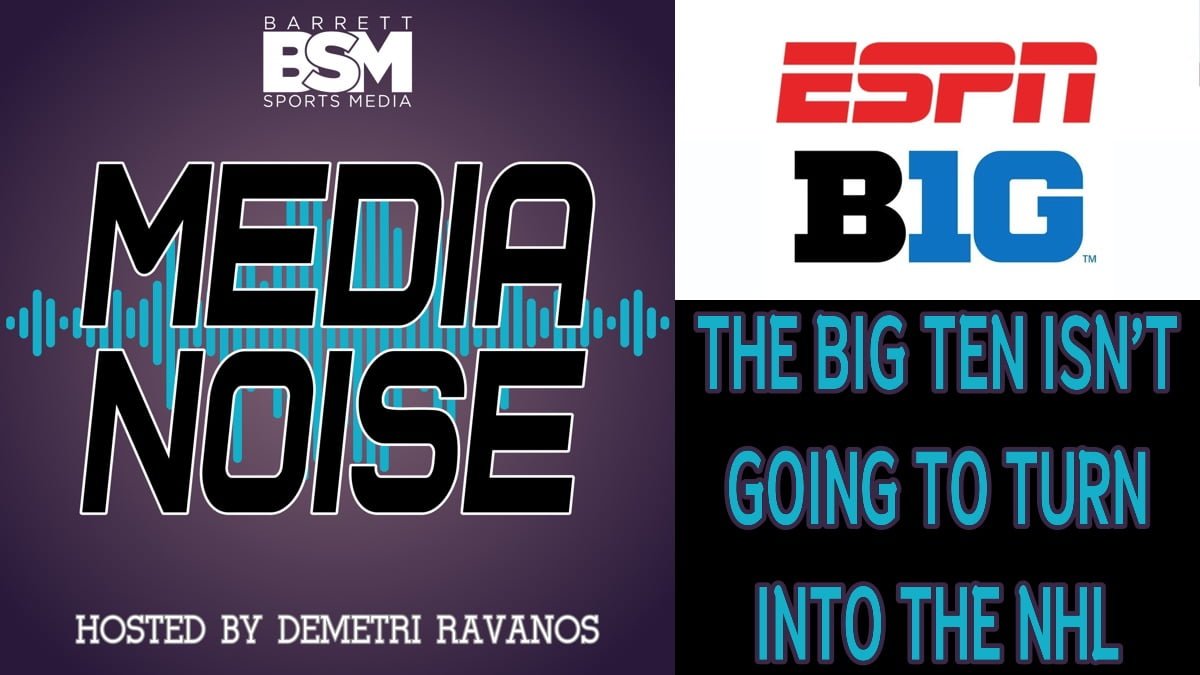What I wrote last week in this space wasn’t wrong, per se. It wasn’t the whole story, either. And at the risk of dragging out the dead horse of intra-show conflict for another week’s worth of whacks, I’d like to resuscitate the topic because there’s something else to learn here.
First, a cliff notes version of our previous episode: I wrote about how I had learned to work with a particular co-host who from time to time drove me up a wall. While I was careful to state this co-host was funny, and unique and described him as a crucial component to whatever success the show enjoyed, I did this in about as backhanded a manner as possible, mentioned him by name, and effectively labeled him as an asshole.
Not my proudest moment. For one, it was unnecessarily hurtful. I could have made the very same points without turning my co-host into a punching bag or even mentioning his name. Second, I do like this particular co-host even if he can make me madder than anyone I’ve ever worked with. He’s an all-time great dad and at his core a kind-hearted man. And finally, even if I didn’t like him, he didn’t deserve that after we worked together successfully for 5 years. So to Jim Moore, I am truly sorry for writing last week’s column the way that I did.
But I’d like to go a little bit deeper here because while last week’s column was an accurate – albeit harsh – reflection of my experiences on the show, it didn’t reflect the full reality of what occurred. This was pointed out to me by several helpful folks in the Seattle area where we worked together, and I’m going to include two examples here, one from a Twitter comment that was deleted and another from an email I received.
The Tweet to me: “As a co-worker, you always seemed to be a management suck-up. My co-workers would make bets on how many times you would whine or berate Jim Moore during a show. You always exceeded their expectations.”
The email: “Do you know how many times I heard you disparage him on the air? … Yours weren’t of the petty variety that you chronicled about him. Yours were biting, relating to his age or supposed lack of work ethic — things that could plant in management’s mind that he — and not you — was dispensable.”
In other words: Jim certainly was not the only person on the show who could be described as an asshole from time to time, and he may not have been the biggest. I did make jokes about my co-host’s age and his work ethic among plenty of other things, including my insistence on bringing up the fact that Jim once invested $10,000 in a so-called “Gold Machine” which was supposedly capable of refining what was previously unprocessable ore. I saw all of this as playing along with the character my co-host had developed, the Beta male. That’s my perspective, though. I don’t know how he felt though, given the reaction to last week’s piece, I think I have a pretty good idea that for him it wasn’t the harmless ribbing that I felt it was.
If this were a normal sad-sack apology, I would now apologize if he was offended. But I try to avoid sad-sack apologies. I make them with my entire chest, and I’m sorry that I acted in a way that could have left my co-host feeling diminished, demeaned, and belittled. I also know that anyone who has spent any amount of time working on a live program has been guilty of these sorts of transgressions and has also been on the receiving end. It’s pretty much endemic to the format especially if you’re looking for subjects that will evoke an emotional reaction. The key to sustaining a show is not avoiding conflict but learning how to manage it.
I also think there are a couple of lessons to be learned here, too.
1) Set some ground rules
If there’s a specific, repetitive behavior that is bothersome say something. I spelled out last week how I stated that the time to declare a segment as being stupid or unworthy was before the show and not during it. Jokes about my co-host’s age and work ethic should have faced a similar prohibition. Making someone the butt of the same joke without their consent is the recipe for resentment.
2) Develop a procedure for resolving conflict
It can be a one-on-one meeting. Perhaps there’s a designated mediator like the producer or program director. One tip: Don’t do it over email. That’s a one-way medium that’s prone to venting because you’re not able to see or read the reaction of the recipient as they’re working their way through your list of grievances.
3) Remember we tend to judge ourselves by our intentions, but others by their actions
I think this is a natural tendency we all have. We seek to minimize any harm we cause by focusing on what we meant. We seek to explain the harm we suffer by focusing on how it felt. Understanding this underlying bias can help us see that the actions of others aren’t always malicious and our reactions aren’t always virtuous.
I’m going to close with a line from NYPD Blue, a cop show where Andy Sipowicz played a quick-tempered detective who wore short-sleeved shirts with ties and exhibited a penchant for violence came off as (troublingly) admirable. He also had an aquarium with saltwater fish, which he used as a metaphor for a younger detective he was paired with.
“You have to keep a clean tank,” he said. “Not too cool, not too warm, keep it all in balance.”
It’s true for a show, too. Too tranquil, it gets boring. Too antagonistic, it becomes volatile. Everyone involved has to be willing to make adjustments when necessary because everyone – from time to time – is going to run a little too hot or feel a little cold.
In the five years I worked with Jim, Dave Wyman, and Jessamyn McIntyre, we kept our tank balanced well enough to sustain an afternoon drive show that many people in Seattle remember fondly. It was some of the most fun that I’ve had working in sports media. Anyone who knows Jim and me knows how much I love his writing. I’m able to quote directly from columns he doesn’t remember writing. I’m laughing right now thinking of the time he described Rick Neuheisel’s sister flipping Hugh Millen the “double Dick Bennett” during Neuheisel’s lawsuit against the NCAA and the University of Washington. If you know, you know.
Jim was also capable of making me madder than any other co-worker I’ve ever had. That’s not a criticism. It reflects as much on my level of sensitivity as his behavior. I am glad that I learned to accept who he was as a co-worker throughout our time working together because it made the show more enjoyable for me. I wish I had learned that lesson well enough to have written last week’s column with a smile instead of a snarl.
Danny O’Neil is a sports media columnist for BSM. He has previously hosted morning and afternoon drive for 710 ESPN Seattle, and served as a reporter for the Seattle Times. He can be reached on Twitter @DannyOneil or by email at Danny@DannyOneil.com.








